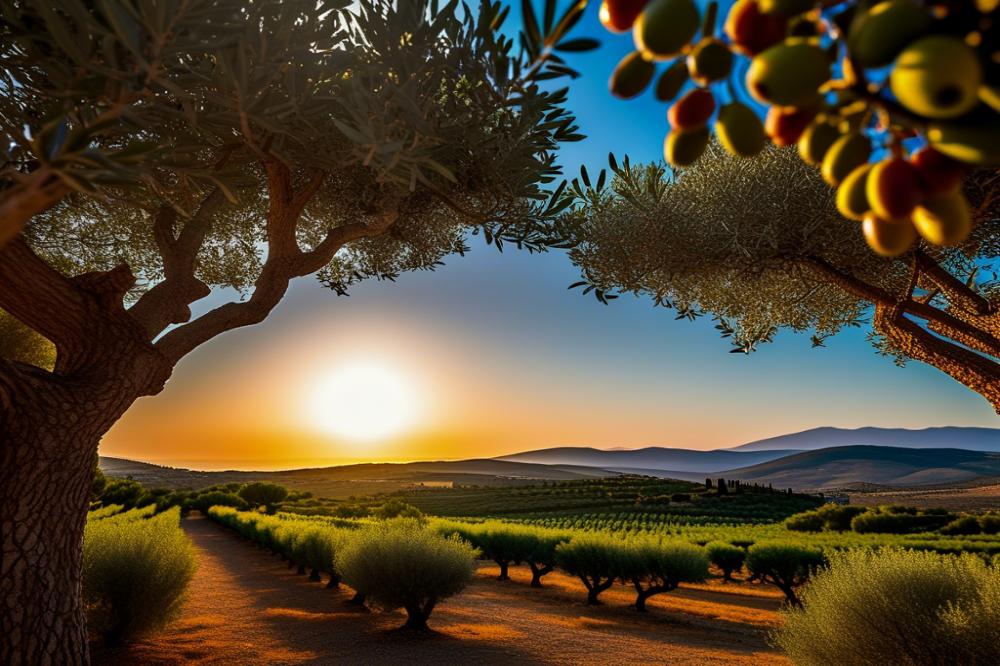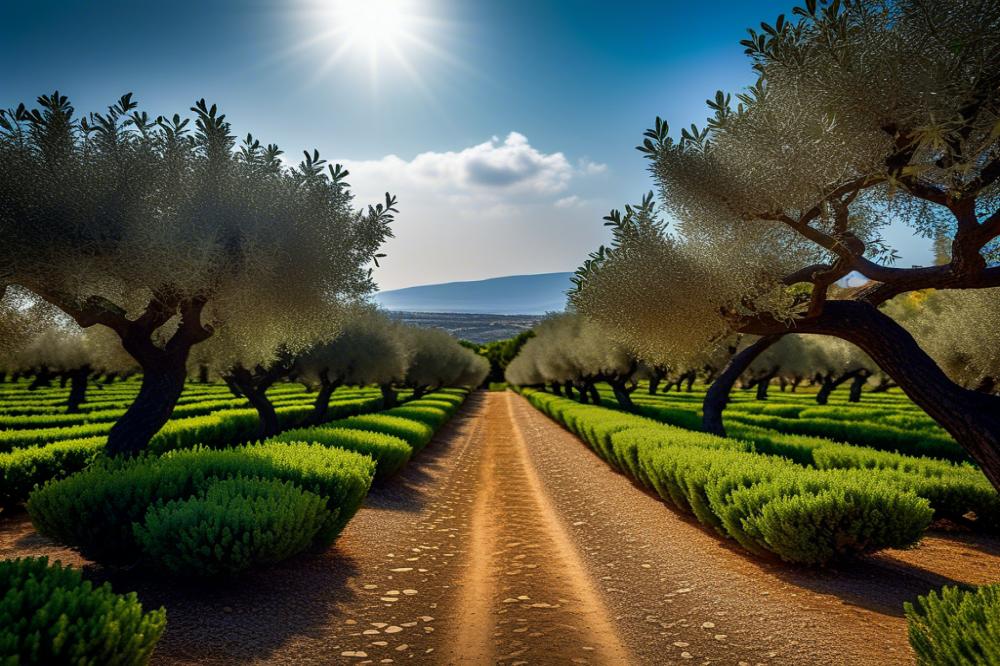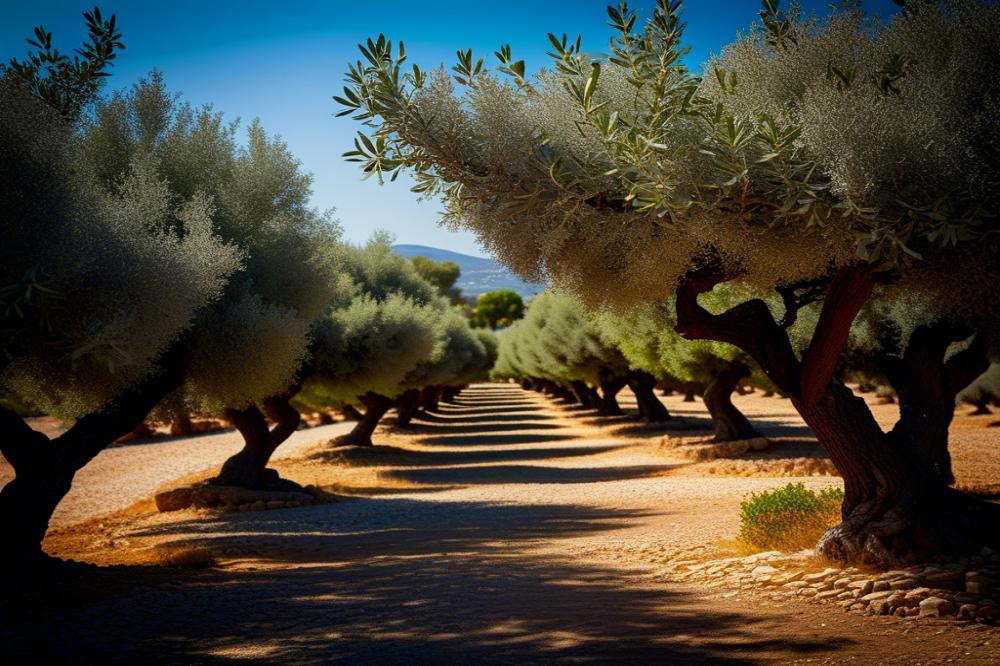Exploring the Olive Oil Heritage of Crete
Cretan Olive Oil plays a vital role in the culinary adventures found throughout Greece. This golden liquid, cherished for its flavor and health benefits, is more than just an ingredient; it is a tradition passed down through generations. Every bottle carries with it the essence of Crete, a land where olive trees flourish in the warm Mediterranean sun.
The history of olive oil production on this island stretches back thousands of years. Ancient civilizations cultivated olive trees, understanding their importance not just for food but for culture and ritual. Olive oil became a staple in the diets of Cretan people, woven into their daily lives and special occasions. Over time, traditional methods of extraction and refinement have been perfected, ensuring that the unique qualities of the olives are preserved.
When exploring the Mediterranean diet, olive oil stands out as a key player. It is known for its numerous health benefits, contributing to heart health and enhancing flavors in dishes. People enjoy it drizzled over fresh salads, added to roasted vegetables, or even dipped with bread. The practices surrounding olive oil tasting also invite enthusiasts to discover the rich range of aromas and flavors that differ based on the region and variety of olives used.
Throughout the years, agricultural practices have evolved, yet the commitment to quality remains strong. Farmers on Crete still rely heavily on their age-old traditions, employing techniques passed down from their ancestors. This connection to the land not only supports sustainability but also deepens the cultural significance of olive oil in the daily lives of those who call Crete home.
In the vibrant tapestry of Greek gastronomy, Cretan Olive Oil holds a special place. It enriches dishes and brings people together, reflecting the island’s deep-rooted heritage. Each taste offers a glimpse into the serene landscapes where olive trees sway gently in the breeze, standing as silent witnesses to the culinary journey of a people deeply connected to their roots.
Cretan Olive Oil


Cretan olive oil is more than just a culinary product; it is a vital part of Cretan culture and history. This rich liquid comes from olives harvested from ancient trees that thrive on the island. Known for its role in the Mediterranean diet, this oil is celebrated for its flavor and health benefits. The production methods used today often rely on generations of knowledge passed down through families, highlighting the importance of tradition in such practices.
Types of Olives Used in Production
A variety of olives contribute to the exceptional quality of this olive oil. The Koroneiki olive is perhaps the most famous and widely used type. Its small size and high oil content make it ideal for creating a robust flavor. Additionally, the Tsounati olive adds a unique character with its rich aroma. Other local varieties also play a role in flavor profiles and blending practices. Growers take pride in cultivating these olives, ensuring that the best fruits are selected for pressing.
Characteristics of Cretan Olive Oil
This olive oil showcases a vibrant green color and a fresh, fruity aroma. Its taste can range from mild to intense, often with hints of pepper and grass. Many people appreciate the smooth texture that coats the palate. The health benefits of Cretan olive oil cannot be ignored either. Packed with antioxidants, it supports heart health and has anti-inflammatory properties. Its versatility makes it an essential ingredient in countless recipes, from salad dressings to marinades.
When engaged in olive oil tasting, the subtleties in flavor can surprise many novices. Crettan oil can complement a wide array of dishes, enhancing their flavors without overpowering them. Cretan agricultural practices, which focus on sustainability and natural growth, help maintain the oil’s pure essence. Visitors to Crete often remark on the significance of olive trees dotting the landscape, serving as a reminder of the island’s deep-rooted connection to this cherished produce.
This olive oil represents not only the land but also the people who depend on it. Its presence in local kitchens tells a story of tradition, family, and community. As part of a broader Mediterranean diet, it has become a symbol of healthy living. Each bottle of this precious oil reflects years of hard work and respect for nature.
Traditional Methods of Production


Olive oil production in Crete has deep roots that stretch back to ancient times. The methods used have evolved, yet many traditional practices remain a vital part of the process. Ancient techniques involved manual harvesting and simple tools, while modern advances have introduced machinery that can increase efficiency. Both methods aim to extract the high-quality oil that is cherished in the Mediterranean diet.
Local artisans play a crucial role in preserving these age-old techniques. Many families pass down knowledge from one generation to the next. Each producer often has their own secrets, leading to diverse flavors in the oil they create. Even in today’s world, small-scale producers take pride in their work, ensuring their oils are rich in taste and nutrients.
The geography of Crete contributes significantly to the quality of its olive oil. The island’s climate, with warm, dry summers and mild winters, creates the perfect environment for olive trees to thrive. The soil composition is also essential. Cretan land, enriched with minerals, allows the olives to develop complex, fruity flavors. These natural elements shape the oil’s quality, making it distinct and valuable.
Culinary uses for olive oil span across countless dishes, enhancing flavors and providing health benefits. Olive oil tastings have become popular among visitors, showcasing the wide range of colors and aromas. Each bottle tells a story of the land where it was produced, making each tasting a cultural journey. The impact of agricultural practices cannot be overstated. Sustainable farming methods help maintain the land and promote biodiversity.
Understanding the cultural significance of olive oil in Crete goes beyond its deliciousness. It is woven into the island’s identity. Festivals celebrate the harvest, and locals cherish their olive oil as a staple in everyday life. The love for this liquid gold reflects in every home and market, serving as a reminder of Crete’s rich heritage and community.
Olive Trees and Agriculture in Crete


The landscape of Crete is filled with olive trees. These ancient trees thrive in the warm Mediterranean climate. Groves stretch across the hills and valleys, creating a green mosaic against the blue sky. olive oil production is a vital part of Cretan culture. The trees, some hundreds of years old, stand as symbols of endurance and richness in history.
Farmers use traditional methods to cultivate olives. They often plant trees in terraces to prevent soil erosion. This technique showcases their deep connection with the land. Harvesting is usually done by hand, which helps protect the delicate branches. Many families pass down knowledge about the best times to pick the fruit. These methods represent not only agriculture but also a way of life.
In recent years, sustainable agriculture has gained importance in olive farming. Practices that reduce chemical use benefit the environment and enhance soil health. Biodiversity is vital to this process. By planting different varieties of olive trees, farmers promote a healthier ecosystem. Various species attract unique pollinators and lead to more robust growth.
The connection between olive trees and the Mediterranean diet is significant. People have enjoyed olives and olive oil for thousands of years. Culinary uses are vast, ranging from salads to marinades. Dishes made with Cretan olive oil often have unique flavors. Health benefits abound, as this oil is rich in antioxidants and healthy fats.
Olive oil tasting has become a popular activity for visitors. It provides insight into the different flavors that olives can produce. Each region can bring a distinct taste profile through its own agricultural practices. Understanding this heritage can deepen appreciation for Cretan culture. The olive tree, thus, stands not only as a crop but also as a bridge to the island’s history.
Health Benefits of Cretan Olive Oil


Nutritional Profile and Health Advantages
Cretan olive oil is rich in monounsaturated fats. This type of fat is beneficial for heart health. It helps lower bad cholesterol levels, which can reduce the risk of heart disease. Loaded with antioxidants, this oil also supports the body’s ability to fight off free radicals. These substances can contribute to aging and disease. Additionally, this olive oil contains vitamins A, D, E, and K. Each of these vitamins plays a crucial role in maintaining overall health. Its anti-inflammatory properties may also assist in alleviating chronic inflammation.
Role in the Mediterranean Diet
The Mediterranean diet emphasizes the importance of healthy fats, especially from sources like olive oil. This dietary approach is well-known for its benefits on cardiovascular health and weight management. In Crete, olive oil is more than just a cooking ingredient; it serves as a staple in every household. People use it in salads, as a dipping sauce, or for sautéing vegetables. The regular consumption of this healthy fat is linked to longevity. Residents of Crete often enjoy a diet filled with fresh produce, whole grains, and seafood, with olive oil at its core.
Scientific Studies Supporting Health Claims
Multiple scientific studies have examined the health effects of Cretan olive oil. One significant study linked it to lower risks of heart disease and stroke. Research also suggests it may protect against certain cancers. Another study highlighted its positive impact on brain health. Participants consuming a diet rich in this oil performed better on cognitive tests. Furthermore, scientific findings indicate its potential role in managing conditions like diabetes. Embracing traditional methods of olive oil production can enhance these health benefits. Many agricultural practices on Crete ensure the quality of the oil. Educating people about olive oil tasting can deepen appreciation for its health benefits too.
Culinary Uses of Cretan Olive Oil
Exploration of Traditional Dishes Featuring Olive Oil
Cretan cuisine is deeply intertwined with local olive oil production. Many traditional dishes highlight this essential ingredient. For instance, Dako is a famous Cretan salad. It features barley rusks topped with juicy tomatoes, feta cheese, and a generous drizzle of olive oil. Another popular dish is the slow-cooked vegetable stew called Briam. This dish bursts with flavor from seasonal vegetables, enhanced by the addition of high-quality oil. The unique taste of olive oil also complements grilled meats. Lemons and herbs are often added to create mouthwatering marinades.
Importance in Local Cuisine and Gastronomy
In Crete, the significance of olive oil in gastronomy cannot be overstated. It plays a crucial role in the Mediterranean diet. Local families often gather around meals that showcase this cherished ingredient. The use of olive oil in cooking enhances flavors while providing health benefits. Rich in healthy fats, it contributes to heart health and overall well-being. The agricultural practices behind olive oil production reflect a strong cultural significance. Families have passed down traditional methods for generations, protecting their culinary heritage.
Tips for Incorporating Cretan Olive Oil in Everyday Cooking
Incorporating this flavorful oil into daily meals can be simple and rewarding. To start, use it as a base for salad dressings. Combine it with vinegar, lemon juice, and herbs for a zesty flavor. Don’t forget to drizzle it on freshly baked bread for a quick snack. Another idea is to use olive oil when roasting vegetables. The oil caramelizes the natural sugars, creating a delicious dish. Experimenting with olive oil tasting can also open new avenues. Taste different varieties to discover which ones suit your palate best. Adding it to pasta dishes or freshly made hummus can elevate these everyday staples. Enjoying the distinct flavors of Cretan olive oil can transform your cooking experience.
Olive Oil Tasting Experiences
In Crete, olive oil tasting events invite visitors to explore the depth of flavor that this liquid gold offers. Guests participate in guided sessions where they learn about the intricacies of olive oil production. Such events often take place in olive groves or traditional farms. Enthusiasts can indulge in sampling various oils, each showcasing the essence of local agricultural practices.
The process of tasting olive oil involves more than just sipping. First, one should examine the appearance. A true olive oil has a vibrant color, often from green to golden yellow. Next, the aroma plays a crucial role; taking a moment to inhale the fragrance helps to identify different notes like fruitiness or grassy hints. Finally, tasting requires a small sip. Swirling it in the mouth allows one to appreciate the flavor and texture. It’s often surprising how many layers of taste emerge, from robust and peppery to mild and fruity, reflecting the health benefits tied to the Mediterranean diet.
Pairing olive oil with food can elevate any dish. Drizzling it over fresh salads, grilled vegetables, or crusty bread enhances flavors magnificently. Cretans often enjoy their oil with dips or as a finishing touch on meats and fish. The combination of olive oil and fresh ingredients truly captures the heart of Mediterranean culinary uses. Explore the local customs, as they suggest particular oils for different types of meals, ensuring a beautiful balance on the plate. Taste is subjective, so don’t hesitate to experiment with pairings that delight your palate.
Olive oil tasting in Crete is not just an event; it embodies cultural significance. Visitors gain insight into traditional methods that have been passed down through generations. Knowledge about the olive trees, including their history and importance, is shared during these experiences. Each tasting serves as a celebration of the island’s rich heritage. The joy of discovering unique flavors connects people with the land and its storied past.
Cultural Significance of Olive Oil in Crete
Olive oil plays a vital role in the traditions and rituals of Cretan life. The production of this golden liquid is not merely a job; it is a time-honored practice deeply rooted in the island’s culture. Harvesting olives remains a communal effort, connecting families and friends. Each fall, villagers gather in groves, celebrating the season with songs and laughter as they work together.
Connection to identity runs strong in Crete. The olive tree symbolizes both prosperity and resilience. Families have relied on the land for generations. This heritage binds the people to their ancestors. Various myths and legends surround the tree, reflecting its importance in ancient Greek culture. Olive oil is not just food; it represents the soul of Cretan life.
Olive Oil Festivals and Community Events
Cretan communities regularly host olive oil festivals to honor this essential product. These events showcase local olive oil production and traditional methods. Visitors can participate in olive oil tasting sessions, enjoying the rich flavors that vary from one region to another. Educational booths offer insight into the health benefits of using quality olive oil in a Mediterranean diet.
During these festivals, artisans demonstrate ancient agricultural practices. People can witness firsthand the process of turning olives into oil. Workshops invite the curious to join in the hands-on experiences. Community members celebrate their culture, sharing stories and recipes passed down through generations.
Food plays a central part in these gatherings. Traditional dishes, drizzled with the finest olive oil, are served with pride. Each bite reflects a connection to the land and its history. Celebrating in this way ensures that the importance of olive oil is passed on to future generations. Festivals are not just events; they are a way to keep the spirit of Crete alive.
Embracing the Essence of Cretan Olive Oil Heritage
The heritage of olive oil production in Crete runs deep. Generations of families have dedicated themselves to perfecting this craft. Tradition weaves through every step, from the cultivation of the olive trees to the careful press of the fruit. In every bottle, you can taste the island’s history, hard work, and passion for quality.
Experiencing Cretan culinary adventures is like taking a journey through time. Each meal tells a story, whether it’s a simple dish drizzled with local olive oil or an elaborate feast featuring seasonal ingredients. The vibrant flavors found in Cretan cuisine invite everyone to savor life. Visitors to the island can explore local tavernas and markets, where fresh produce and rich oils come together in exciting ways.
Adopting a Mediterranean lifestyle can bring about many benefits. Engaging with this way of living encourages a balanced diet, physical activity, and strong social connections. Embracing these values can lead to a healthier and happier life. The warmth of Cretan hospitality adds to the charm, making every visit a memorable experience.
As you reflect on the rich heritage of olive oil from Crete, consider planning a visit to witness this culture firsthand. Taste the flavors, enjoy the traditions, and let the beauty of the island inspire you.



